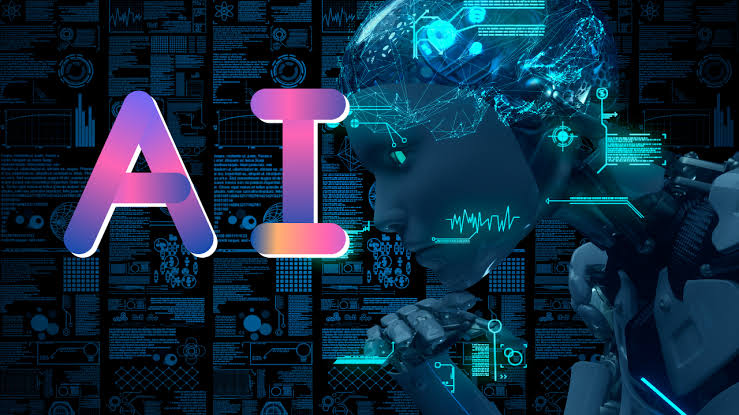Search Engine Optimization (SEO) has long been the backbone of digital marketing, guiding businesses and creators in optimizing their content to rank highly on platforms like Google, Bing, and Yahoo. However, the emergence of AI conversational agents like ChatGPT and other large language models (LLMs) presents a disruptive question: What happens to SEO if search engines become obsolete?
This blog explores the implications of a hypothetical future where LLMs dominate information retrieval, the potential changes to SEO strategies, and how businesses can adapt to thrive in this new era.

1. The Evolution of Search and the Rise of ChatGPT
Search Engines as We Know Them
Search engines are the foundation of modern internet usage. They rely on algorithms to index and rank websites based on relevance, quality, and user engagement. Traditional SEO strategies aim to align with these algorithms to maximize visibility.
ChatGPT and Its Competitors: A Paradigm Shift
ChatGPT, OpenAI’s conversational agent, has demonstrated the potential to transform how users seek information. Instead of typing queries into a search bar and scanning through links, users receive direct, conversational answers. The appeal lies in its:
Efficiency: Faster results with no need to sift through multiple web pages.
Personalization: Tailored responses based on context and history.
Multifunctionality: Ability to perform tasks beyond search, such as drafting content, solving complex problems, and offering nuanced recommendations.
As these systems improve, they could diminish the need for traditional search engines, challenging the very foundation of SEO.
2. Understanding the SEO Landscape Without Search Engines
The End of the Click-Based Economy?
Traditional SEO relies on metrics like clicks, bounce rates, and backlinks to determine success. Without search engines, the concept of “ranking” may dissolve, and visibility could become less about optimizing for algorithms and more about being a preferred source for AI systems.
Key questions include:
How will businesses ensure their content is selected by AI models?
What metrics will replace clicks and traffic as measures of success?
Data Aggregation and Source Prioritization
AI models rely on vast datasets to provide answers. In this future, the focus may shift from competing for search engine rankings to becoming a trusted data source for AI training and inference. This will require:
Ensuring data credibility: Models prioritize reliable, authoritative sources.
Strategic partnerships: Collaborating with AI providers to integrate proprietary data.
Shifts in Content Accessibility
If users no longer browse websites but consume content through AI outputs, accessibility could be redefined. Businesses might have to optimize for:
Machine readability: Structuring content for easy ingestion by AI.
Natural language processing (NLP): Using conversational tones to align with LLM-generated answers.
3. SEO 2.0: Adapting Strategies for AI Dominance
Optimizing for AI Systems
Instead of optimizing for search algorithms, SEO strategies will evolve to appeal to AI-driven platforms. Key tactics may include:
Structured Data and Metadata: Providing clean, organized data that AI can easily parse.
Authority Building: Establishing credibility through consistent, high-quality information that AI systems deem reliable.
Conversational Content: Writing in ways that mimic human conversations, making it easier for AI to integrate content seamlessly into responses.
New KPIs for Success
As web traffic becomes less relevant, businesses will measure success through alternative metrics:
Brand mentions: How often an AI model cites or recommends your brand.
Inferred leads: Analyzing sales and conversions driven by AI referrals.
Engagement within AI ecosystems: Monitoring how users interact with AI-provided content.
Investing in Proprietary Data
AI models are only as good as the data they are trained on. Companies may find value in curating proprietary datasets, enabling them to influence the training process of AI systems.
4. Potential Challenges in the Post-Search Engine Era
Loss of Organic Discovery
One of SEO’s greatest strengths is its ability to drive organic discovery. In an AI-dominated future:
Content discovery may rely more heavily on brand recognition or direct queries.
Smaller businesses might struggle to compete with established players that AI systems inherently prioritize.
Ethical Concerns and Bias
AI models often reflect the biases in their training data. This poses risks for SEO in terms of:
Unfair prioritization: AI systems might favor large corporations or widely cited sources.
Lack of transparency: It may be unclear why certain brands or information are prioritized.
The Role of Paid Promotions
As organic rankings fade, businesses may turn to paid placements within AI responses. However, this raises questions:
Will users trust AI-generated content if it’s monetized?
How will this affect content authenticity and brand credibility?
5. Opportunities in a ChatGPT-Driven World
Enhanced Personalization
With AI handling queries, businesses can focus on creating hyper-personalized experiences. AI tools can enable:
Tailored content
recommendations based on user profiles.
Dynamic responses
that adjust in real-time to user inputs.
Content as a Service
Businesses could leverage AI systems to distribute their expertise directly to users, becoming integrated knowledge providers within AI platforms.
The Growth of AI-Optimized Content
Content creation will likely evolve to prioritize formats that AI systems can use effectively:
Micro-content: Bite-sized, highly specific pieces of information.
Dynamic content: Media that adjusts based on user interaction with AI.
6. Preparing for the Future: Practical Steps
1. Strengthen Your Brand
In a world where AI systems drive visibility, brand recognition becomes crucial. Invest in strategies to build a strong, memorable identity.
2. Diversify Your Online Presence
Relying on any single platform—be it search engines or AI—is risky. Ensure your business is active across multiple digital ecosystems, including social media, apps, and niche platforms.
3. Focus on Thought Leadership
Position your brand as an authority in your industry by creating valuable, high-quality content that AI models will prioritize.
4. Collaborate with AI Providers
Engage with developers of AI systems to better understand their data needs and ensure your content is included in training datasets.
5. Monitor AI Trends
Stay informed about advancements in AI to anticipate changes and adapt your strategies accordingly.
7. A New Era of Digital Marketing
The hypothetical decline of search engines represents more than just a technological shift—it’s a cultural and behavioral transformation. As users adapt to AI-powered information retrieval, businesses and marketers must rethink their strategies to remain relevant.
SEO Won’t Die, It Will Transform
While the term “search engine optimization” may lose its traditional meaning, the underlying goal—maximizing digital visibility—will persist. In this new era, “SEO” might stand for “Systems Engagement Optimization,” reflecting the need to align with AI-driven platforms.
Conclusion
The rise of AI systems like ChatGPT poses both challenges and opportunities for businesses. While the potential obsolescence of search engines may disrupt traditional SEO practices, it also opens the door to innovative approaches in digital marketing.
By embracing AI optimization, investing in credibility and proprietary data, and focusing on brand recognition, businesses can not only survive but thrive in this new landscape. The future of SEO lies not in fighting the tide of AI but in learning to navigate it effectively.











